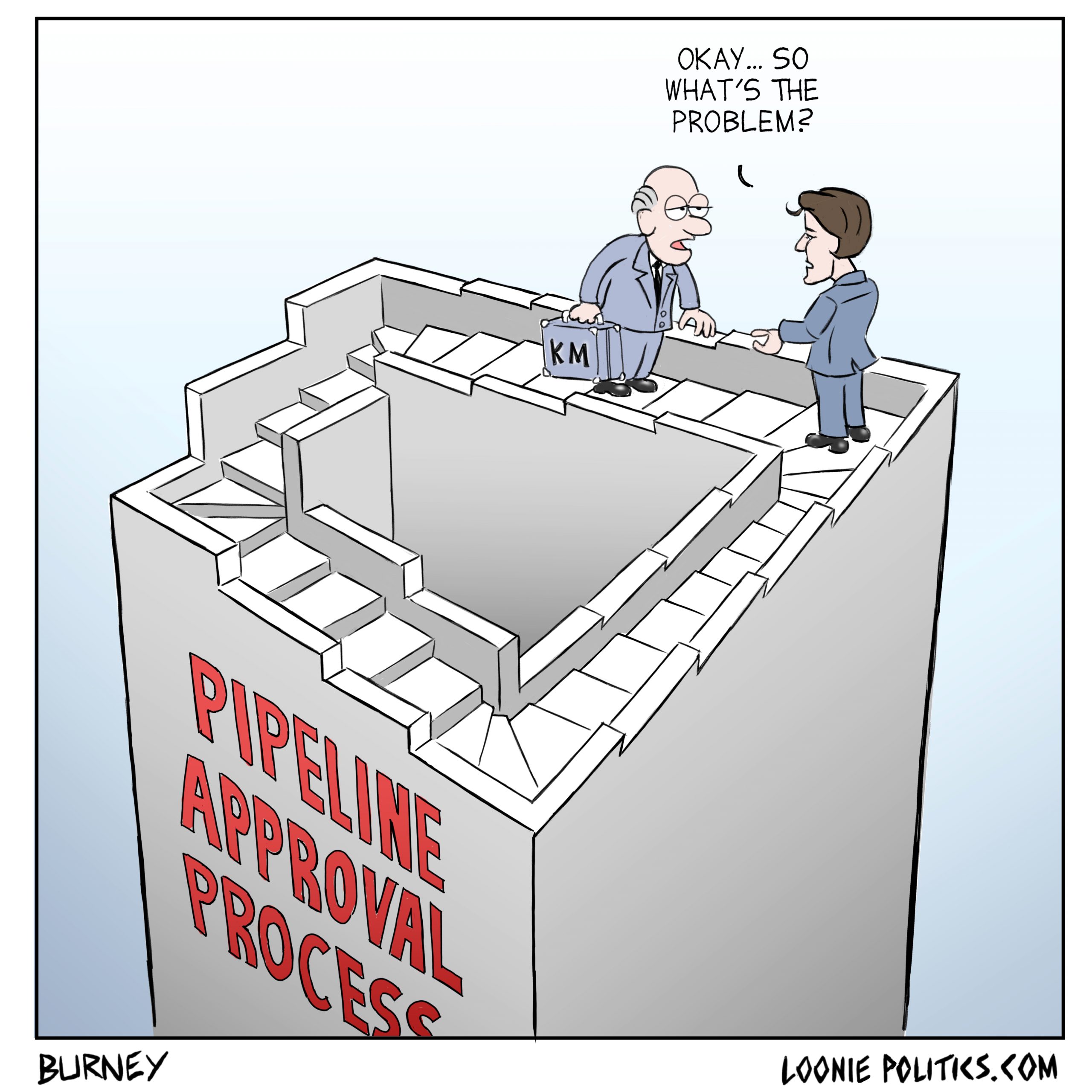in their 2015 election platform, the federal Liberals stated that "only communities can grant permission" to move forward with energy projects, even if the relevant regulatory bodies have already given their all-clear. Today, Prime Minister Justin Trudeau says the Trans Mountain pipeline from Edmonton to Burnaby, B.C., will move forward whether British Columbians want it or not. To that end, he has promised to use "legislative tools" to assert the authority his government already has over this interprovincial pipeline.
The time for Trudeau to do this was in February, after B.C. Premier John Horgan proposed new restrictions on bitumen shipments through his province. At that time, Kinder Morgan, the energy giant that owns the existing pipeline and would have been responsible for its expansion, may have held out hope that Canada was more economically functional than this. Instead, they have suspended all non-essential spending on the expansion, and will walk away completely if B.C. does not back down by next month.
Luckily, Trudeau and Alberta Premier Rachel Notley have a back-up plan: If Kinder Morgan no longer wants to assume any financial risk for Trans Mountain's expansion, Canadian taxpayers will. Granted, the current estimated cost is $7.4 billion, which will probably rise as is common for megaprojects. And Notley has sowed even more doubt about Canada's openness for business with her threats to restrict oil exports to B.C., thereby letting the Western bastards freeze in the dark. (Rachel, dear, you live in Edmonton. They live on the coast. Who's likelier to freeze?) So taxpayers will end up assuming considerably more risk than they would have if Trudeau had asserted federal authority months ago.
That's the pessimistic view. I, on the other hand, think Trudeau and Notley may be on to something. After all, if an expanded Trans Mountain is "critical" (Notley), "a vital strategic interest" (Trudeau), "comparable in importance and magnitude to the building of the St. Lawrence seaway" (Conservative MP Erin O'Toole), and so necessary that its construction may require the intervention of the Canadian military (former Alberta Energy Minister Rick Orman), why haven't we been treating it that way from the beginning? Why have we left this absolutely essential pipeline at the mercy of a private company a U.S.-based private company, no less when a comparably essential project, like a bridge, would have an entirely new Crown corporation behind it?
This could be a whole new way forward for anything that needs to be built in Canada. Creating and maintaining a favourable investment climate is hard. But when you have over 18.4 million investors living in your own country, and they don't have a choice, who needs to try? We've put federal taxpayers on the hook for lots of things they may never use, and by gum, we can do it some more. Forget "Open for Business." Let's send a message that our elected officials can really get behind: "F**k You! It's Infrastructure!"
You see, you can make almost anything look more important if you use that word. Just look at railways, which may be doubly responsible for oil shipping worldwide by 2019, according to the International Energy Agency. The B.C. government isn't totally happy about that; they intend to fight for provincial authority over that form of bitumen transportation as well. But you don't see their citizens protesting the rail lines themselves. Why? Because F**K YOU! IT'S INFRASTRUCTURE!
How about ports? One aspect of the opposition to the Trans Mountain expansion is its impact on tanker traffic in the Port of Vancouver. Horgan, with the support of former B.C. NDP leader Adrian Dix, has not ruled out accepting a pipeline route that would end at Deltaport, 38 kilometres south in the Greater Vancouver suburb of Delta. Is anyone calling to shut down Deltaport? Nope! F**K YOU! IT'S INFRASTRUCTURE!
Adopting this approach accomplishes two goals: It better frames the pipeline as a national economic necessity, and it ensures more predictable construction by putting the government on the hook. Of course, there will be many protests regardless, as Trans Mountain will be used primary for oil. But that's only for now; the world is still discovering new oil reserves, but Alberta's oil sands may not produce forever. Once they dry up, or demand shifts away from bitumen, pipelines can be used for many other resources. Like wine.
If this is what it takes to get something built in Canada, let's go all the way and make it the default course of action. We'll never need the favour of another private company again.
Written by Jess Morgan









